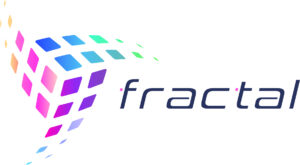For state governmental agencies, data growth far exceeds compute speed. Public databases were created in size and scope dwarfing people’s ability to search them.
This impacted state government executives. They had a database for Medicaid, another for voters, DMV, WIC and scores of other programs. A citizen could be represented differently in any or all of those databases.
That is a huge problem! Which one is correct?
The resulting problem is people can search these databases, but they contain so many errors the government executive or citizens cannot make any sense of them.
Fractal changed that paradigm.
Once a database is made public, nobody can limit what people can find in it.
Only a few years ago, that was no threat to those who did not really want public data to be public. They knew only Big Tech firms could process the data anyway. Citizens at kitchen tables – well, they would never get into that data.
Now they can; they are.
Public databases are everywhere. The county property tax records show the true address and building type of every structure. They have inspectors driving around to make sure a residence is not designated as a church.
Marry county property tax records, for all 3,200 United States counties to any county’s voter registration file, and there is no chance of someone registering from a vacant lot.
That is the state-of-the-art today – with Fractals.
Ingest the industry database for hospitals, cognitive care facilities and cross check them with financial contribution files to find people who could not possibly have written a check – nor would they legally be able to do so.
Great changes in society take place when technologies shift dramatically. Comparative advantage changes sides.
Cavalry charges were feared – until the machine gun. Horses became obsolete.
Battleships ruled until air power, the few remaining are museums.
SQL, relational database, data centers, the cloud – are the remnant of the 1980 corporate tech stack. Today data centers span city blocks or desert landscapes to process that obsolete tech stack.
The comparative advantage is now in the hands of the citizen.
Using a technology far more powerful than an Oracle database, requiring hardware they can hold in their hand – public databases are giving up data never before imagined.
Thus, disruption.

